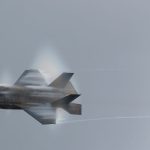U.S. President Donald Trump’s administration reportedly indicated this week that it wants American taxpayers to foot the bill for Taliban expenses incurred during the ongoing peace talks to end the Afghanistan war, but a Democrat-controlled House committee denied the request.
In a statement first reported by Roll Call, Kevin Spicer, a spokesman for Rep. Peter Visclosky (D-IN), claimed that the “the money would cover the Taliban’s costs for expenses such as transportation, lodging, food, and supplies,” adding:
The Defense Department requested [the] fiscal year 2020 funding to support certain reconciliation activities, including logistic support for members of the Taliban and, in March 2019, they sent a notification letter to the Committee on using fiscal year 2019 funds for similar activities.
Cdr. Rebecca Rebarich, a Pentagon spokeswoman, told BBC:
Following the June 2018 ceasefire in Afghanistan, the Commander of U.S. Forces, Afghanistan requested the authority to use funds to facilitate meetings between the Afghan government and insurgent groups looking to implement local ceasefires in order to be poised to take advantage of further opportunities to reduce levels of violence in the country should such opportunities present themselves.
For the fiscal year 2020 (October 1, 2019, thru September 30, 2020), the Pentagon submitted a similar legislative request, the commander added.
Nevertheless, some U.S. officials argued that reimbursing the Taliban would amount to illegally providing support to a terrorist organization, prompting the House Appropriations Subcommittee on defense to deny the funding request.
Although the U.S. has not officially designated the Taliban as a foreign jihadi organization like al-Qaeda and the Islamic State (ISIS/ISIL), at least one executive order and other government documents describe the militants as a terrorist group.
NORAD Launches US Fighter Jets as Russian Military Aircraft Enter American Air Defense Identification Zone
Virginia Dems mandate Jan. 6 be taught as ‘violent insurrection,’ ban election fraud claims in schools
Trump Turns Up Heat on Republicans, Pressures Them to Pass SAVE Act: ‘Country Defining Fight for the Soul of Our Nation!’
Pentagon policy chief grilled as Dem claims Trump broke promise about going to war with Iran
Georgia sheriff arrested on DUI charge after blood alcohol content was allegedly almost triple legal limit
Small plane crashes into Phoenix home minutes after takeoff, injuring 3
‘Third-party’ auditor investigating Minnesota fraud received millions in state Medicaid funds
Macron vows nuclear arsenal boost as Europe turns to nukes amid rising global threats
‘Under siege’: Inside the growing radical Islam threat critics say is hiding in plain sight in deep red Texas
Walz-Ellison administration ‘enabled’ Minnesota’s fraud scandal: Guy Benson
NYC Dept of Education employee arrested, charged with murder of Bronx father
Savannah Guthrie returns to ‘Today’ show studio for first time since mother went missing
Iran widens regional war with first strike into Azerbaijan
5 House Oversight Committee Republicans Join with Democrats to Subpoena Pam Bondi in Epstein Probe
As Jasmine Crockett Concedes Texas Senate Primary, Attention Focuses on Radical Dem Who Beat Her
The Taliban is known to generate hundreds of millions of dollars annually from illicit activity, primarily the cultivation and trafficking of opium and its heroin derivative that generates the majority of its annual funding and allows it to keep waging a relentless insurgency. An increase in opium cultivation in Afghanistan, home to the world’s largest provider of heroin and opium, has allowed the group to generate even more money.
Taliban jihadis also received support from Pakistan, Russia, and Iran, according to the Pentagon.
U.S. officials argue that giving American taxpayer funding to the Taliban violates laws against providing material support for the terrorist group.
On Wednesday, the House Appropriations Subcommittee on Defense reportedly approved a nearly $700 billion spending bill that explicitly outlaws the reimbursement of expenses for jihadi militants.
The legislation states that none of the funds the legislation made available may be used “to pay for the expenses of any member of the Taliban to participate in any meeting that does not include the participation of members of the Government of Afghanistan or that restricts the participation of women,” BBC noted.
Rep. Visclosky included the restriction in the bill.
Despite U.S. insistence, the Taliban has refused to allow Kabul to participate in the talks, claiming that it will only do so after all foreign forces leave the country, a move that would leave Kabul vulnerable to being ousted by the terrorist group.
NORAD Launches US Fighter Jets as Russian Military Aircraft Enter American Air Defense Identification Zone
Virginia Dems mandate Jan. 6 be taught as ‘violent insurrection,’ ban election fraud claims in schools
Trump Turns Up Heat on Republicans, Pressures Them to Pass SAVE Act: ‘Country Defining Fight for the Soul of Our Nation!’
Pentagon policy chief grilled as Dem claims Trump broke promise about going to war with Iran
Georgia sheriff arrested on DUI charge after blood alcohol content was allegedly almost triple legal limit
Small plane crashes into Phoenix home minutes after takeoff, injuring 3
‘Third-party’ auditor investigating Minnesota fraud received millions in state Medicaid funds
Macron vows nuclear arsenal boost as Europe turns to nukes amid rising global threats
‘Under siege’: Inside the growing radical Islam threat critics say is hiding in plain sight in deep red Texas
Walz-Ellison administration ‘enabled’ Minnesota’s fraud scandal: Guy Benson
NYC Dept of Education employee arrested, charged with murder of Bronx father
Savannah Guthrie returns to ‘Today’ show studio for first time since mother went missing
Iran widens regional war with first strike into Azerbaijan
5 House Oversight Committee Republicans Join with Democrats to Subpoena Pam Bondi in Epstein Probe
As Jasmine Crockett Concedes Texas Senate Primary, Attention Focuses on Radical Dem Who Beat Her
Dismissing Kabul as an American puppet, the Taliban considers itself the only legitimate government of Afghanistan. Taliban jihadis, who already control or contest about half of Afghanistan’s districts, are fighting to implement a sharia-compliant Islamic emirate.
The U.S. Department of State (DOS) oversees the office of U.S. reconciliation envoy Zalmay Khalilzad, Trump’s top peace negotiator dealing with the terrorist group, but the Pentagon was the department to request reimbursement.
Peace negotiations have failed to stop the Taliban from escalating its deadly attacks on Afghan civilians and security forces even during Ramadan when some Muslims believe it is especially heroic and holy to engage in jihad and die a martyr during the holy month.
For over a year, the Trump administration has been engaged in intensified peace negotiations to end the more than 17-year-old conflict as part of its South Asia strategy.
Since October 2018 alone, Trump administration officials have held six rounds of peace talks with the Taliban in Qatar’s capital, Doha, home to the terrorist group’s political office.
Trump’s South Asia strategy is primarily focused on convincing the Taliban into a negotiated political reconciliation with the Afghan government, a move that would allow the terrorist group to retake office in Kabul under a potential power-sharing agreement.
Currently, U.S.-Taliban negotiators are focused on further developing a draft agreement that would see the withdrawal of American troops in exchange for counterterrorism assurances from the Taliban.
The war in Afghanistan has come at an immense cost: nearly $1 trillion, 2,285 American military deaths, and 20,452 maimed.
Taliban jihadis generate most of their money from trafficking and cultivating opium and its heroin derivative, a small portion of which is fueling the unprecedented number of fatal drug overdoses that have killed hundreds of thousands in the United States.
Story cited here.
























